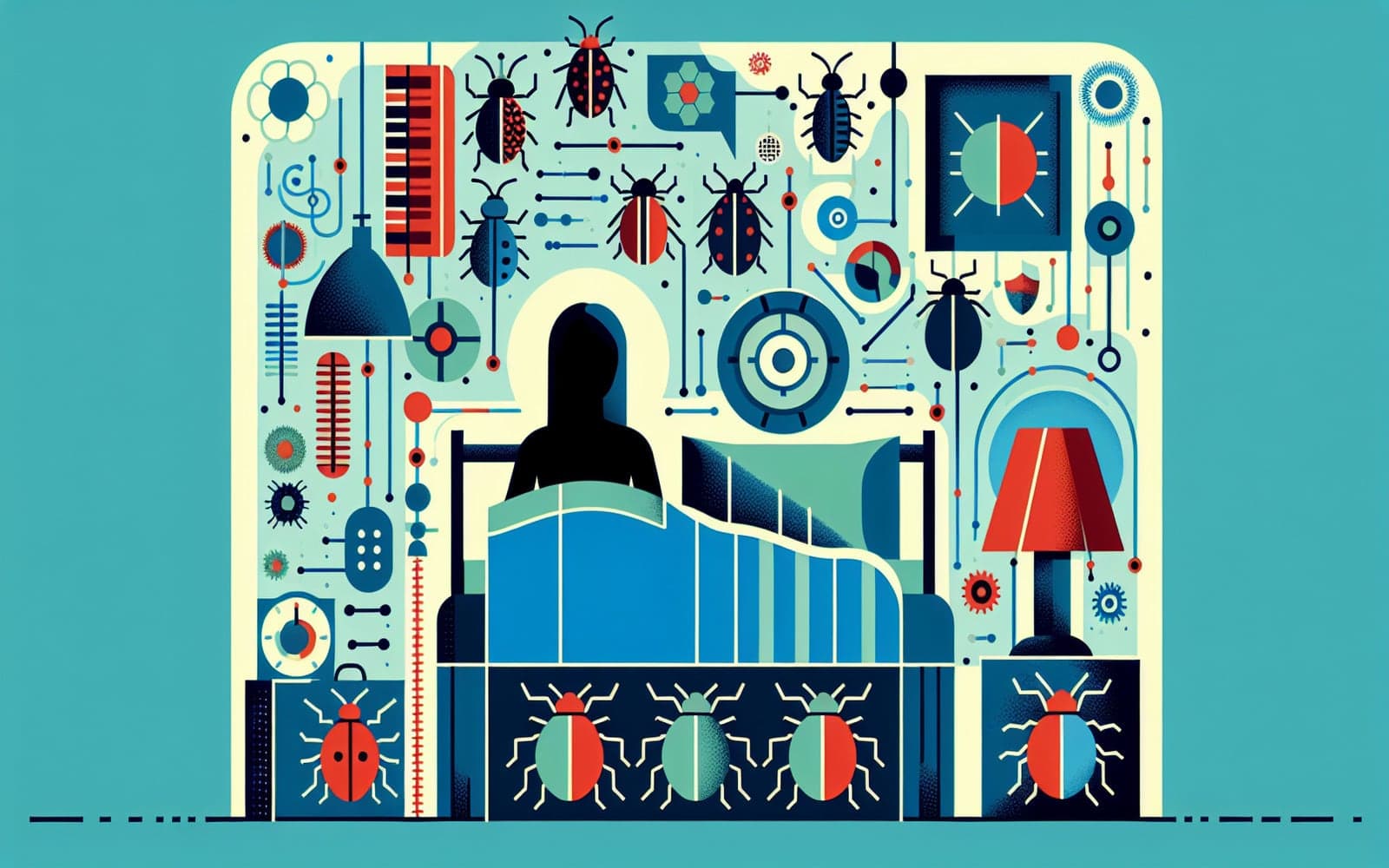Are Bedbugs Biting You at Night? Here's What You Need to Know
Published: Oct 13, 2023
Bedbugs are tiny, blood-sucking insects that can turn your peaceful sleep into a nightmare. These nocturnal pests are making a comeback, and understanding them is key to protecting yourself.
Contents
Spotting the Signs of Bedbug Bites
Bedbug bites often appear as small, red, itchy bumps on exposed skin areas like the face, neck, arms, and hands. These bites may form a line or cluster and can take days to appear. Some people may have no reaction at all, while others might develop more severe symptoms like blisters or hives.
The Bedbug's Sneaky Lifestyle
Bedbugs are masters of hide-and-seek, preferring to nest in cracks and crevices near sleeping areas. They're attracted to body heat and carbon dioxide, typically feeding at night while you're asleep. These pests can survive for months without a meal, making them particularly resilient.

Confirming a Bedbug Infestation
Suspecting bedbugs is one thing, but confirming their presence is crucial. Look for signs like tiny blood spots on sheets, dark fecal spots on mattresses, or a sweet, musty odor. For a definitive diagnosis, it's best to call in a professional pest control service to inspect your home thoroughly.
Frequently Asked Questions
While annoying, bedbugs don't typically transmit diseases to humans.
Bedbugs can quickly infest an entire home if left unchecked.
Adult bedbugs are visible to the naked eye, about the size of an apple seed.
No, bedbugs can infest any home, regardless of cleanliness.
Key Takeaways
While bedbugs can be a nightmare, understanding their behavior and taking prompt action can help you reclaim your peaceful sleep.
Worried about bedbugs? Talk to Doctronic, your AI health companion, for more information and personalized advice.Related Articles
References
Goddard J, deShazo R. Bed bugs (Cimex lectularius) and clinical consequences of their bites. JAMA 2009; 301:1358.
Centers for Disease Control and Prevention. Bed Bugs: Biology. www.cdc.gov/parasites/bedbugs/biology.html
Always discuss health information with your healthcare provider.

